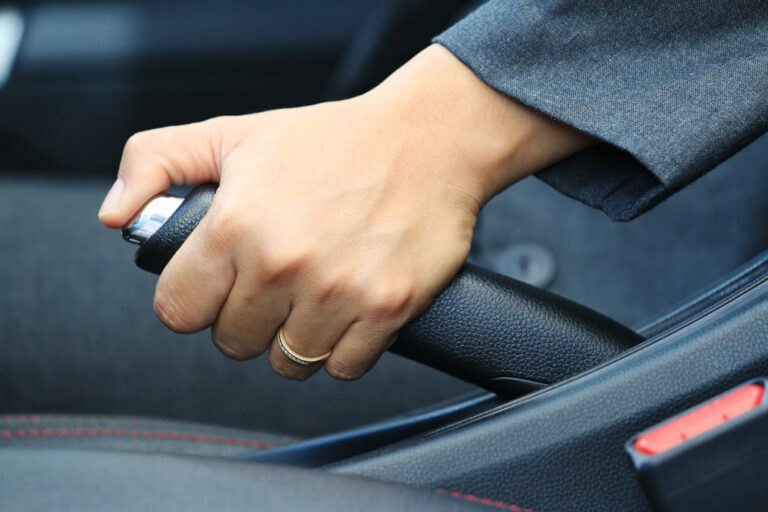Your car’s brake pedal is one of the most important safety features, so it’s important to keep it in good working condition. If you notice that your brake pedal is getting hard to press, it’s a sign that something is wrong. There are a few different things that can cause a hard brake pedal, but the most common are:

Image: www.usedcars.co.ke
-
Air in the brake lines
-
Low brake fluid
-
Worn brake pads
-

Image: www.carparts.comFaulty brake master cylinder
-
Damaged brake booster
If you’re not sure what’s causing your hard brake pedal, it’s best to have it checked out by a mechanic. However, if you’re confident in your mechanical abilities, you can try to troubleshoot the problem yourself:
Air in the brake lines
Air in the brake lines can cause a spongy brake pedal or a hard brake pedal.
Low brake fluid
Low brake fluid can cause a hard brake pedal because there is not enough fluid to transfer the force from the master cylinder to the brake calipers.
Worn brake pads
Worn brake pads can cause a hard brake pedal because they are not able to grip the brake rotors effectively.
Faulty brake master cylinder
A faulty brake master cylinder may have difficulty generating enough pressure to engage the brakes.
Damaged brake booster
A damaged brake booster makes it harder to apply pressure to the brake pedal by amplifying the force of your foot on the pedal.
Troubleshooting a Hard Brake Pedal
Before you start troubleshooting, it’s important to gather some basic tools and materials:
- Wrench
- Socket set
- Brake fluid
- Rags
1. Check for air in the brake lines.
One of the most common causes of a hard brake pedal is air in the brake lines. Air can get into the brake lines when you replace brake pads or calipers that have been contaminated with debris, like brake dust or dirt. To check the brake lines for the source of the contamination, visually inspect the brake lines from the master cylinder to the brake calipers and identify any signs of damage, like cracks, bulging, or cuts typically caused by old age. If there are no obvious signs of damage to the lines, inspect the brake calipers, brake pads, and rotors for contamination or debris.
2. Check the brake fluid
If the brake fluid level is low, it can cause a hard brake pedal. Open the hood and look for the brake fluid reservoir. It is typically made of clear plastic with a black cap. The fluid level should be between the “MIN” and “MAX” marks on the reservoir. If the fluid is low, add enough brake fluid to bring the level up to the “MAX” mark. Identify the source of the leak if the fluid level is constantly low.
3. Check the brake pads
Worn brake pads can cause a hard brake pedal. To check the brake pads, remove the wheels and look at the brake pads through the caliper. The pads should be at least 1/4 inch thick. If they are thinner than that, they need to be replaced.
4. Check the brake master cylinder
If the brake master cylinder is faulty, it may not be able to generate enough pressure to engage the brakes. To check the brake master cylinder, look for leaks around the cylinder. If you see any leaks, the master cylinder needs to be replaced. Disconnect the brake line going into the master cylinder and locate an assistant. Have the assistant step on the brake pedal while you observe the disconnected brake line; if fluid comes out, the master cylinder is likely faulty and needs replacing, but if no fluid comes out of the brake line, the issue could be a leak in the brake caliper or in the brake line.
5. Check the brake booster
If the brake booster is damaged, it will make it harder to apply pressure to the brake pedal. To check the brake booster, start the engine and press on the brake pedal. The brake pedal should feel firm. If the brake pedal feels spongy or if it takes a lot of effort to press down on the pedal, the brake booster may be damaged.
How To Fix A Hard Brake Pedal
Conclusion
If you have a hard brake pedal, it’s important to have it checked out by a mechanic. A hard brake pedal can be a sign of a serious problem, so it’s best to get it fixed as soon as possible.







